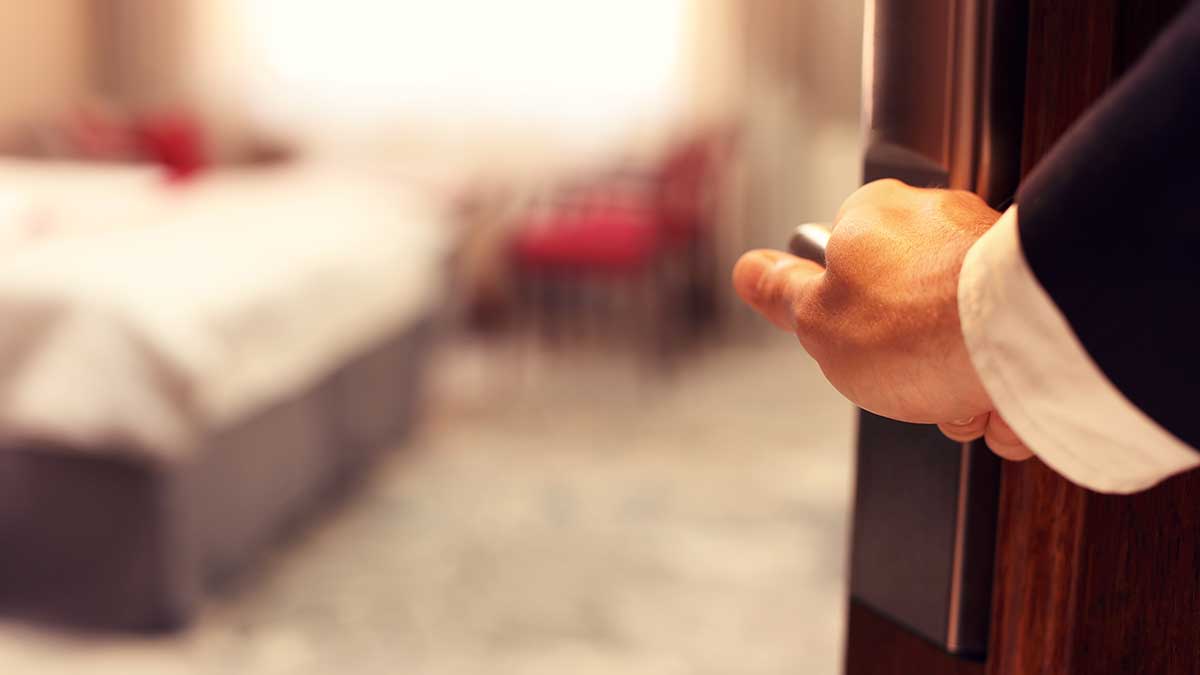The tragic deaths of a couple in a luxury hotel in Mexico earlier this month, initially suspected to be caused by a gas leak, have brought attention to the issue of carbon monoxide poisoning and its potential dangers for travellers worldwide.
Neither gas nor carbon monoxide was responsible for the deaths, but the incident has resurfaced cases of carbon monoxide poisoning linked to travellers’ deaths, and the importance of taking measures to protect yourself from carbon monoxide poisoning while travelling.
One crucial step you can take is ensuring that your accommodation is equipped with a carbon monoxide detector.
Carbon monoxide is a colourless and odourless gas that can seep out undetected and pose a significant risk, particularly in enclosed spaces such as hotel rooms or Airbnb rentals. In the absence of a detector, the gas can go unnoticed until it’s too late for medical intervention.
As reported by Fodor’s Travel, Airbnb recognises the importance of safety and encourages its hosts to install carbon monoxide alarms. It’s not a blanket requirement, but the company has given away over 200,000 combined smoke and carbon monoxide detectors to eligible hosts globally.
You can check the listing information to see if the host has included details about smoke and carbon monoxide alarms. Airbnb also flags listings without reported detectors.
Vrbo, owned by Expedia Group, similarly recommends hosts to have carbon monoxide detectors but does not make it mandatory. Travellers staying at Vrbo and Stayz properties should conduct a safety check upon arrival and familiarise themselves with the location of safety equipment.
Hotels, on the other hand, are not legally required to install carbon monoxide detectors in every guest room, but some hotels may address the issue off their own bat. Still, the lodging industry argues that it’s an unnecessary and expensive measure, despite the relatively low cost of detectors.
Even if a carbon monoxide detector is present, you should ensure they are in good working order. If you’re uncomfortable testing the alarm yourself or unsure how to do it properly, you can always ask the front desk for assistance. Alternatively, you can bring your own portable carbon monoxide tester.
In the unfortunate event that you suspect a carbon monoxide leak and start experiencing symptoms such as dizziness or nausea, it’s crucial to seek fresh air immediately and notify the authorities. It may save your life.
Taking these precautions can significantly reduce the likelihood of carbon monoxide poisoning incidents. By being proactive and informed, you can enjoy your trip with greater peace of mind.
Also read: Do not turn on one of these heaters
Have you ever worried about carbon monoxide poisoning in your accommodation? Do you think detectors should be mandatory in all accommodation?


Some years ago I checked in to a small hotel in Jogyakata, Indonesia.
I was shown the room and the bathroom, and was told that a Japanese tourist had recently committed suicide in the bath tub.
It was fairly obvious what had caused his demise, as the doors had no ventilation and the hot water was produced by a gas heater on the wall.
No warnings or anything. It pays to check these things.